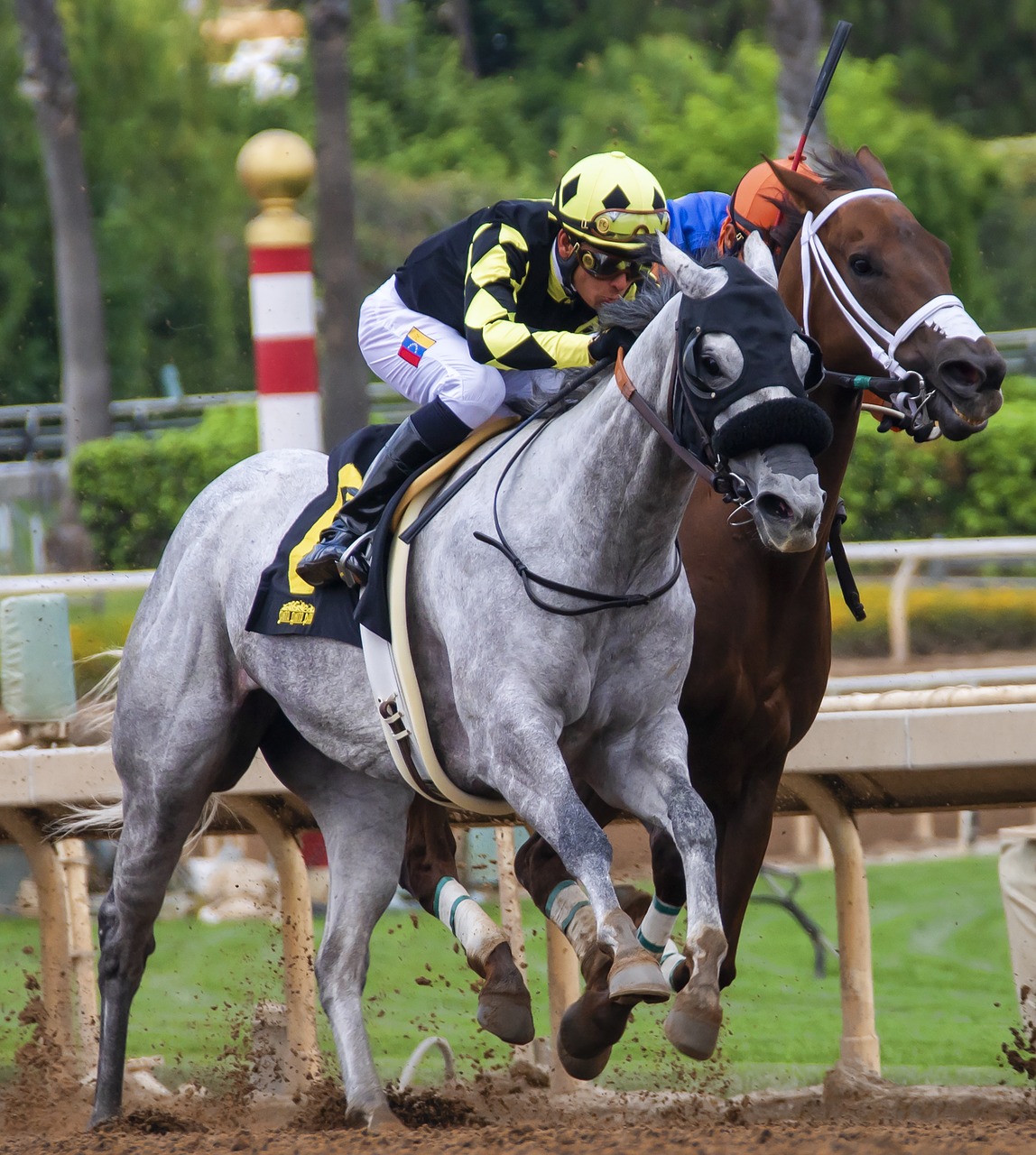1. Introduction: The Growing Popularity of Sports Betting
Sports betting has become an increasingly prevalent activity, capturing the attention of millions of people worldwide. With the rise of online platforms and the accessibility of betting options, consumers are increasingly engaging in this form of entertainment. However, understanding the behavior of sports betting consumers is crucial for marketers to effectively engage with this audience. This article aims to provide key insights into consumer behavior in sports betting, shedding light on the factors that influence their decision-making processes and offering valuable guidance for marketers seeking to connect with this passionate and lucrative consumer base. By comprehending the motivations, emotions, and social influences that drive sports betting behavior, marketers can develop strategic approaches that resonate with consumers and maximize their marketing efforts in this dynamic industry.
1. Introduction: The Growing Popularity of Sports Betting
1.1 The Evolution of Sports Betting
Sports betting has come a long way from its humble beginnings. Gone are the days when it was limited to a few dusty bookmakers on the corner of the street. Today, it has evolved into a multi-billion-dollar industry that attracts millions of people worldwide. The rise of technology has played a significant role in this evolution, with online platforms and mobile apps making betting more accessible than ever before.
1.2 Current Trends and Statistics in the Sports Betting Industry
If you think sports betting is just a niche activity, think again. The numbers speak for themselves. In recent years, the sports betting industry has experienced explosive growth, capturing the attention of both casual bettors and seasoned gamblers. According to industry reports, the global sports betting market is estimated to reach a staggering $155.49 billion by 2024. With such growth, it’s clear that sports betting has become a mainstream pastime for many.
2. Factors Influencing Consumer Behavior in Sports Betting
2.1 Psychological Factors: Motivations and Perceptions
When it comes to sports betting, our minds play a crucial role in deciding whether to place that bet or not. Psychological factors such as motivations and perceptions heavily influence consumer behavior. Some may bet for the thrill of competition, seeking the rush of adrenaline that comes with every wager. Others may bet to prove their knowledge or expertise in a particular sport. Understanding these motivations and perceptions can help marketers tailor their strategies to resonate with their target audience.
2.2 Socioeconomic Factors: Income, Education, and Social Status
Let’s face it; sports betting is not a one-size-fits-all activity. Socioeconomic factors like income, education, and social status can influence consumer behavior. High-income individuals may be more inclined to place larger bets, while those with a lower income might opt for smaller stakes. Similarly, educational background and social status can shape the preferences and betting patterns of individuals. By considering these factors, marketers can better understand their target audience and tailor their offerings accordingly.
2.3 Demographic Factors: Age, Gender, and Location
Demographic factors also play a significant role in consumer behavior in sports betting. Age, gender, and location can impact the types of sports bettors engage in and the platforms they use. For example, younger bettors might gravitate towards mobile apps, while older generations may prefer traditional betting methods. Understanding these demographic nuances enables marketers to create targeted campaigns that resonate with their desired audience.
3. The Role of Psychological and Emotional Factors in Sports Betting
3.1 Risk Perception and Risk-Taking Behavior
When it comes to sports betting, risk is inherent. How individuals perceive and handle risk can greatly influence their betting behavior. Some may be risk-averse, preferring safer bets with lower returns, while others thrive on the thrill of high-risk wagers. Marketers need to understand the spectrum of risk perception and cater to the varying preferences of their audience.
3.2 Cognitive Biases and Irrational Decision-Making
We humans are not always the rational creatures we’d like to believe. Cognitive biases can cloud our judgment and lead to irrational decision-making in sports betting. From the confirmation bias, where we seek information that confirms our pre-existing beliefs, to the gambler’s fallacy, where we believe past outcomes influence future events, these biases can affect our betting choices. Marketers should be aware of these biases and find creative ways to address them in their messaging.
3.3 Emotional Factors: Excitement, Thrill, and Escapism
Emotions often drive our actions, and sports betting is no exception. The excitement and thrill of watching a game can be heightened when there’s money on the line. For some, sports betting provides an escape from the daily grind, allowing them to immerse themselves in the world of sports and experience a sense of euphoria. Marketers can tap into these emotions to create compelling narratives and experiences that resonate with their target audience.
4. The Impact of Social and Peer Influence on Sports Betting Behavior
4.1 Social Norms and Social Proof in Sports Betting
Humans are inherently social creatures, and our behavior is often influenced by others. In the world of sports betting, social norms and social proof play a significant role. When we see others placing bets or discussing their winnings, we tend to follow suit. Marketers can leverage this influence by showcasing positive experiences, testimonials, and endorsements to create a sense of social proof and encourage others to engage in betting activities.
4.2 Influence of Friends, Family, and Social Circles
Our friends, family, and social circles have a profound impact on our behavior, including sports betting. Recommendations and discussions with loved ones can sway our choices and influence our betting decisions. Marketers can harness the power of social connections by encouraging word-of-mouth recommendations, fostering community engagement, and creating opportunities for social interaction within their platforms.
4.3 Celebrity Endorsements and Influencer Marketing
Celebrities and influencers hold sway over their followers, and their endorsement can make a significant impact on consumer behavior in sports betting. From high-profile athletes to social media influencers, their association with betting brands can attract attention and build credibility. Marketers can collaborate with relevant personalities to amplify their message and reach a wider audience, ultimately influencing betting behavior.
Understanding the complex dynamics of consumer behavior in sports betting is crucial for marketers in this rapidly growing industry. By considering psychological, socioeconomic, and demographic factors, as well as the role of emotions and social influence, marketers can craft effective strategies that resonate with their target audience and drive engagement in this ever-evolving world of sports betting. Now, let’s make some smart bets and enjoy the game!
5. Consumer Decision-Making Process in Sports Betting
5.1 Problem Recognition: Identifying the Need to Bet
Before diving into the world of sports betting, consumers experience the initial stage of problem recognition. It’s that moment when they realize they have an irresistible urge to place a bet. Maybe it’s the excitement of a big game or the potential to win some extra cash. Whatever the reason, consumers recognize the need to engage in sports betting.
5.2 Information Search: Sources of Information and Advice
Once consumers acknowledge the need to bet, they enter the information search phase. They scour the internet, read articles (like this one), and seek advice from friends or online communities. It’s important to understand that consumers rely heavily on finding accurate and credible information to make informed decisions. So, marketers should focus on providing reliable resources and expert insights that can help bettors navigate the complex world of sports betting.
5.3 Evaluation of Alternatives: Weighing the Odds and Options
In this stage, consumers evaluate the alternatives available to them. They compare odds, study team stats, and consider various betting options. Marketers can assist consumers by simplifying the decision-making process and presenting the information in a user-friendly manner. Offering clear explanations of different betting strategies or providing interactive tools for analyzing odds can empower consumers to make more confident choices.
5.4 Purchase Decision: Placing the Bet
After careful consideration, consumers reach the purchase decision stage – the moment they place their bets. This is the culmination of their engagement with sports betting. Marketers can support this stage by providing easy-to-use platforms or mobile apps that make the betting process enjoyable and convenient. Offering secure payment options and seamless user experiences enhances the overall satisfaction and likelihood of repeat business.
6. Effective Marketing Strategies for Engaging Sports Betting Consumers
6.1 Personalization and Targeted Marketing Techniques
To capture the attention of sports betting consumers, marketers should employ personalization and targeted marketing techniques. Tailoring messages and offers based on consumer preferences and betting history can significantly increase engagement. By understanding their customers’ preferences, marketers can deliver relevant content and promotions, making the overall betting experience more enjoyable and enticing.
6.2 Creating Engaging Content and User Experiences
In a sea of sports betting options, it’s crucial for marketers to stand out by creating engaging content and user experiences. This means going beyond simple odds and statistics. Infusing humor, interesting narratives, and interactive features can captivate consumers and keep them coming back for more. Remember, betting should be fun, and marketers have the power to enhance that experience through captivating and entertaining content.
6.3 Leveraging Sports Sponsorships and Partnerships
One highly effective marketing strategy is leveraging sports sponsorships and partnerships. Aligning with popular sports teams or individual athletes can enhance brand visibility and credibility. By associating with well-known figures in the sports world, marketers can reach a wider audience and build a sense of trust among consumers. This strategy can also create opportunities for unique promotions or exclusive offers, further enticing potential bettors.
7. Ethical Considerations and Responsible Gambling in Sports Betting
7.1 Promoting Responsible Gambling Practices
While sports betting can be exciting, it is crucial for marketers to promote responsible gambling practices. This means advocating for setting limits and sticking to them, emphasizing the importance of informed decision-making, and providing resources for self-exclusion or seeking help. Responsible marketing should prioritize the well-being of consumers over short-term gains.
7.2 Addressing Problem Gambling and Addiction
Problem gambling and addiction can have serious consequences for individuals and their families. Marketers must be aware of the potential risks associated with sports betting and play a role in addressing these issues. By collaborating with organizations specializing in gambling addiction support and providing educational content about recognizing problem gambling behaviors, marketers can promote a safer betting environment and demonstrate their commitment to social responsibility.In conclusion, understanding consumer behavior in sports betting is essential for marketers looking to succeed in this highly competitive industry. By recognizing the psychological, social, and emotional factors that influence consumer decisions, marketers can develop effective strategies to engage with sports betting enthusiasts. It is also important to address ethical considerations and promote responsible gambling practices. As the sports betting landscape continues to evolve, staying informed about emerging trends and opportunities will be crucial for marketers to stay ahead of the game. By applying the insights shared in this article, marketers can forge stronger connections with sports betting consumers and drive meaningful engagement in this exciting and ever-growing market.
FAQ
1. How can marketers leverage psychological factors in sports betting to engage consumers?
Understanding the psychological factors that drive sports betting behavior, such as motivations and perceptions, allows marketers to craft targeted messaging that resonates with consumers. By tapping into the excitement and thrill associated with sports betting, marketers can create engaging campaigns that capture the attention and interest of their target audience.
2. What role does social influence play in consumer behavior in sports betting?
Social influence is a significant factor in sports betting behavior. Consumers are influenced by social norms, social proof, and the opinions of their friends, family, and social circles. Marketers can leverage this by using celebrity endorsements, influencer marketing, and creating a sense of community around their brand to encourage engagement and participation.
3. How can marketers promote responsible gambling practices in their sports betting marketing strategies?
Promoting responsible gambling is essential in sports betting marketing. Marketers can educate consumers about the potential risks, encourage setting limits on betting, and provide resources for seeking help with problem gambling. By incorporating responsible gambling messaging and initiatives into their campaigns, marketers can demonstrate their commitment to the well-being of their consumers.
4. Are there any emerging trends or opportunities in understanding consumer behavior in sports betting?
Yes, the sports betting industry is constantly evolving, and marketers should stay updated on the latest trends and opportunities. This includes the growth of mobile betting, the integration of technology like virtual reality and augmented reality, and the rise of eSports betting. Adapting to these trends and capitalizing on emerging opportunities can give marketers a competitive edge and help them better understand and engage with sports betting consumers.

AdHang.com is the No.1 agency for digital marketing in Nigeria and the first Internet public enlightenment agency in Africa. AdHang has everything needed to achieve your digital marketing objectives and goals. From strategic digital marketing, a tactical approach to employing advanced digital marketing tools and technologies, using seasoned marketers with decades of marketing communications experience.









Comments